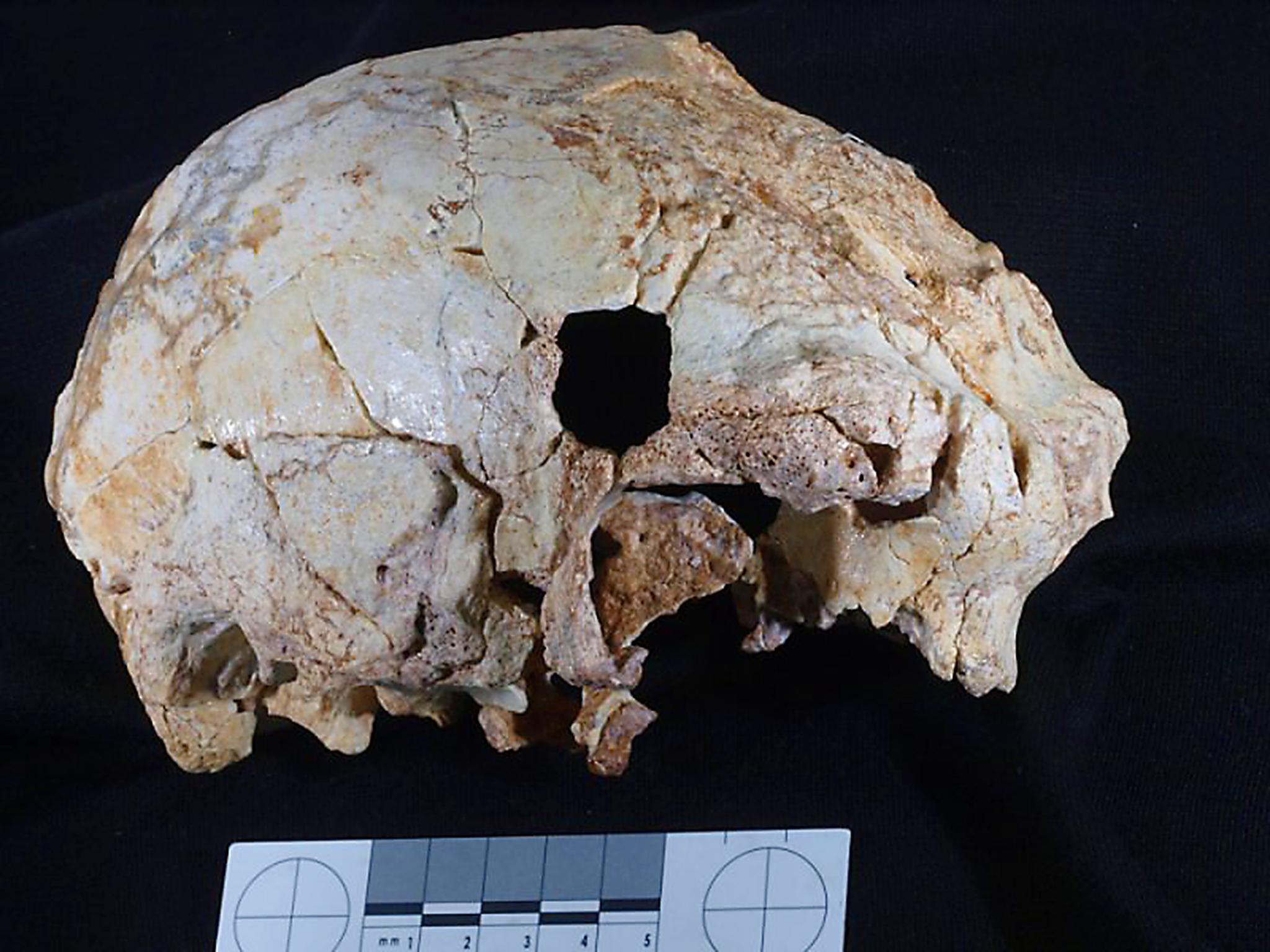400,000 year-old 'Neanderthal' fossil discovered by archaeologists in Portugal
Discovery was made in 2014 but it has taken more than two years to remove the cranium from the sediment

Your support helps us to tell the story
From reproductive rights to climate change to Big Tech, The Independent is on the ground when the story is developing. Whether it's investigating the financials of Elon Musk's pro-Trump PAC or producing our latest documentary, 'The A Word', which shines a light on the American women fighting for reproductive rights, we know how important it is to parse out the facts from the messaging.
At such a critical moment in US history, we need reporters on the ground. Your donation allows us to keep sending journalists to speak to both sides of the story.
The Independent is trusted by Americans across the entire political spectrum. And unlike many other quality news outlets, we choose not to lock Americans out of our reporting and analysis with paywalls. We believe quality journalism should be available to everyone, paid for by those who can afford it.
Your support makes all the difference.Archaeologists have found a 400,000 year-old fossil which is believed to be related to Neanderthals.
On the last day of an expedition to the Gruta da Aroeira cave in Portugal a fossil of a human cranium was found.
The discovery was made in 2014 but it has taken more than two years to remove the cranium from the sediment.
"This is an interesting new fossil discovery from the Iberian Peninsula, a crucial region for understanding the origin and evolution of the Neanderthals," said Rolf Quam, co-author of the study published in Proceedings of the National Academy of Sciences.
Researchers have not been able to ascertain if the cranium belongs to a male or a female but they are sure it belongs to an adult.
"There are some features that are telling us that these guys are ancestors of the Neanderthals — they're not fully Neanderthal yet, but they're on the way," Mr Quam added.
The expedition was so fruitful that archaeologists also discovered a set of Acheulean stone tools and a teardrop-shaped hand-axe tools believed to have originated in the Middle East.
It is estimated that the tools first appeared in Europe about 500,000 years ago.
Join our commenting forum
Join thought-provoking conversations, follow other Independent readers and see their replies
Comments